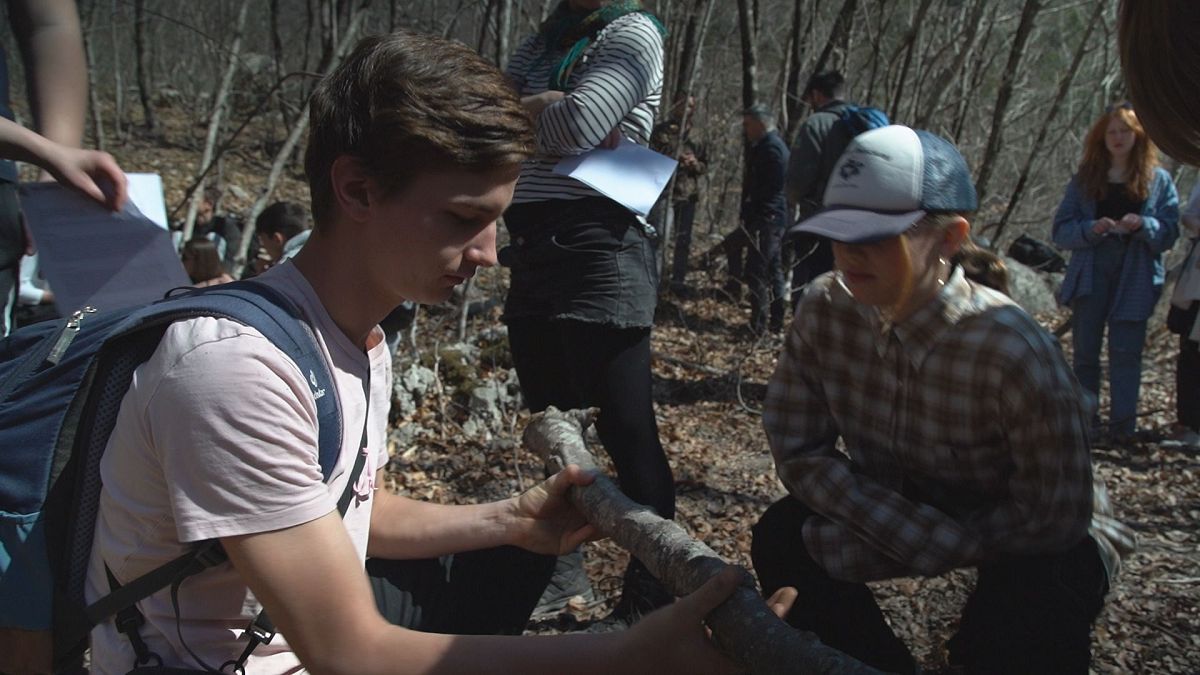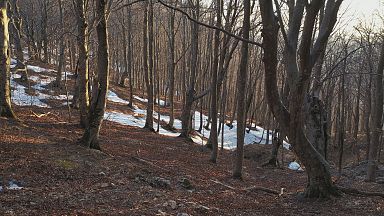Europe’s ancient Beech forests are one of the best natural resources we have when it comes to tackling climate change, but they also face a combination of threats. An EU project has made it a priority to preserve what's left. We’ll be seeing what’s being done to preserve these precious ecosystems?
The Paklenica National Park in Croatia is home to one of Europe’s oldest beech forests. UNESCO protected, no trees can be cut down here. That's crucially important, as primeval beech woodlands like Paklenica are a haven for biodiversity - it's estimated the park is home to 10,000 endemic species, including bears, lynx and wolves.
Beech forests are also vital in the battle against climate change. Centuries of mass deforestation across Europe, however, mean only a few ecosystems like this exist today.
Protecting what is left has become a top priority, especially given the fact that the European continent's native beech woodlands still face a combination of threats, such as fire from warming global temperatures and ongoing deforestation.
A EU project called Beech Power aims to help national parks in five countries - Croatia, Germany, Austria, Slovakia and Slovenia - to preserve these forests through the sharing of knowledge and implementation of quality standards.
The total budget of the initiative is just under €1.9 million. About 1.5 million of that came via Europe’s Cohesion Policy.
Connecting communities
A major pillar of the project is education and bringing communities together. A recent exchange between schoolchildren from the local area and Germany took place to teach the pupils about the forest’s environmental importance - all while having fun.
School Teacher Ana Katalinic told Euronews: “This national park, Paklenica, is a very valuable area. But our kids that are from this area, they are kind of used to it. They don’t see it as a wonder as maybe some other people from the other side of the world can see it. So it is very valuable when they go together with the German students and they can see the park from their eyes and remember themselves why it is so valuable and so beautiful."
“Well, the exchange in general, it’s real nice to see different people from countries, and kids,” said pupil Leonardo Kneževic.
“Today has been a very beautiful day. This exchange is very interesting for me and I hope that we’ll be able to do it often in the years to come," added pupil Petra Knez.
Beech trees once covered more than 90 million hectares of Europe. Today, it's estimated that figure is just over 90,000 hectares. By sharing best practice and establishing the educational roots today, the hope is we’ll all benefit from these precious ecosystems tomorrow.
Summing up Forest Ranger Zlatko Marasović told Euronews: “This project is very important for the Paklenica National Park. We’ve exchanged experiences with other European countries and we’ve also included children in the project. It’s very important that we foster the next generation of nature lovers and forest rangers for this park with these children in the future.”

